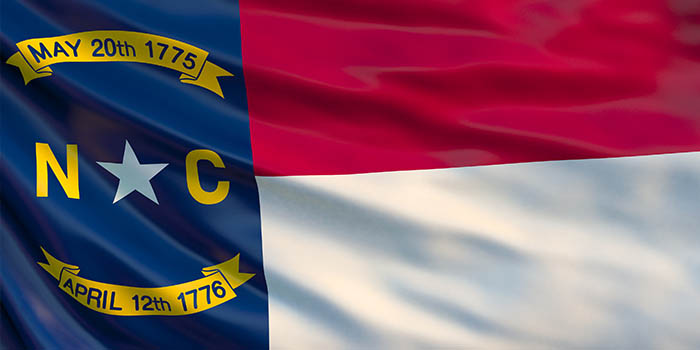
Such a decrease is not unexpected as the initial hype settles down and wagering patterns begin to stabilize, revealing the realistic scope of the state’s betting sector
North Carolina’s sports betting market experienced a significant downturn in its second full month of operations, with revenue plunging by 40.1%. The regulated sector still contributed substantially to the state’s budget. These funds will be instrumental in enhancing gambling harm protection efforts and financing various education and community-facing initiatives.
According to data from the North Carolina State Lottery Commission, the state’s eight licensed sports betting operators accepted $494.6 million in wagers in May, down from $569.2 million in April. The gross wagering revenue also experienced a steep decline, falling from $105.2 million in April to $63 million in May.
With an 18% tax rate on gross wagering revenue, the revenue drop has notable implications for state tax income. May saw operators contribute approximately $11.34 million in taxes, a substantial decrease from the $18.94 million generated in April. Since the launch of sports betting on 11 March, operators have paid more than $42 million in taxes.
While seemingly negative, this development broadly aligns with other jurisdictions introducing regulated sports wagering. As the initial excitement subsides, operators double down on customer retention efforts, aiming to secure their market position. Despite this downturn, last month’s results highlight the Tarheel State’s potential. If the sector follows trends in other similar markets, the following months should bring incremental growth.
The North Carolina General Assembly’s Fiscal Research Division had projected sports betting to generate $64.6 million in taxes in its first year, escalating to $100.6 million by the fourth year. Meeting these projections will require consistent market growth and stability, meaning industry stakeholders will closely monitor the sector’s evolution.
North Carolina’s sports betting law stipulates specific uses for the generated tax revenue, prioritizing several gambling addiction education and treatment programs, helping offset gambling’s negative societal impact. Part of the funds also go to youth sports programs, university athletics, and other community-facing projects like events, games, and attractions.
With its relatively high 18% tax rate, North Carolina intends to maximize state revenue from the burgeoning market. However, if the recent drop in revenue proves to be more than a one-off decline, there may be a need for further legislative adjustments to stabilize and grow the market.